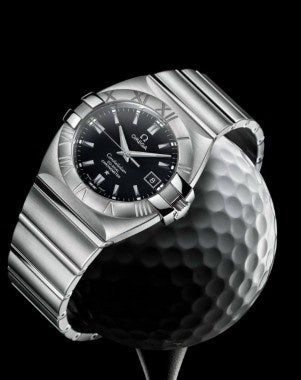China Reports 87% Increase In Swiss Watch Imports In January, Powering Industry's First Month-On-Month Growth Since 2008#

For decades, the wristwatch has held particular value in China. First, in the first 30 years after the revolution as a sort of "pragmatic luxury," exemplified by the watches typically given as wedding gifts to young couples and the Shanghai watches seen adorning the wrists of leaders like Mao Zedong and Zhou En'lai, then -- since 1979 -- as a "true luxury." As many watchmakers have noted through the years, the first major luxury purchase for many of China's newly rich is a Swiss watch.
The symbolism of an extravagant Swiss watch has not been lost in the China of the post-Deng Xiaoping economic reforms, during which millions of Chinese have, for the first time, made their fortunes and quickly made their country the world's second-largest luxury market. Swiss watchmakers have, for their part, been quick to notice this -- indeed, the first foreign television commercial ever to air in China (in 1979) was for Swiss Rado wristwatches.
Recently, Jing Daily looked at Switzerland's conquest of the Chinese high-end wristwatch market, a market it has dominated nearly unchallenged for 30 years. This week, the Financial Times looks at the Swiss watch industry's prospects for continued growth, speaking to executives like Luigi Macaluso of Swiss watchmakers Girard-Perregaux, who says that he, like many in the industry, have their sights firmly set on China and Asian markets, predicting Swiss watches to remain a "must have" for the country's newly-minted elite.
From the FT:
“China, Asia is driving demand,” [Macaluso] said at the SIHH watch fair in Geneva, adding that many Chinese customers buy watches when they travel to Europe, the US and Japan.
Bernard Fornas, chief executive of Cartier, agrees. “If you go to Shanghai or Beijing, you see all these very rich young people and they buy. They buy like crazy,” he said at the same trade fair.
As if to underline the increasing importance of China, Swiss watch export figures showed an 87 per cent rise in sales to the country in January, helping the industry to report its first year-on-year rise in demand since 2008.
The figures, released in mid-February, showed particularly strong demand from Hong Kong, China’s special administrative region, and Singapore, while the US, France and Italy continued to fall.
The article points out that companies have already widely exploited the more developed markets of Beijing, Shanghai and Guangzhou and are now focusing more intently on reaching wealthy businessmen -- the article notes that the typical luxury watch customer in the mainland is a man, for whom an expensive watch is regarded as a status symbol (and for whom the watch is usually purchased by a business associate).
However, critics worry that a primary industry focus on the mainland Chinese market at the potential expense of other markets could backfire:
Despite all the hopes pinned on China as the new El Dorado for luxury watch groups, analysts at HSBC warned in a recent report against over-reliance on the country. They wrote: “For the moment, luxury sales in China seem to be still in the very initial phase of growth.
“But if all efforts are focused on China, as evidenced by the seeming obsession with the country in luxury goods companies’ communications, how quickly will the market mature and what then will be left to fuel future growth?”